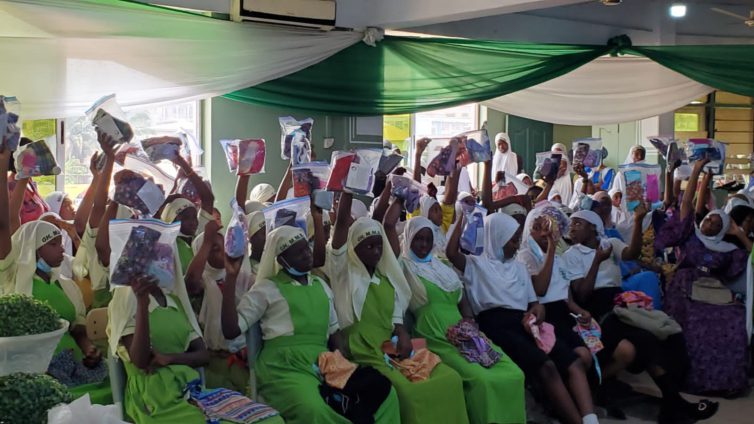The Federation of Muslim Women Association of Ghana (FOMWAG) is urging parents to educate girls on proper menstrual health to deal drastically with rising cases of teenage pregnancy.
According to FOMWAG, teenage girls must better understand and appreciate the effects of the menstrual cycle, even at an early age.
An understanding of menstruation and its relationship to fertility can help girls avoid unintended pregnancies.
At a menstrual cycle awareness event in Kumasi, various speakers highlighted the relationship between menstruation and fertility.
Organized by the Bridge To Africa Connection in partnership with FOMWAG and the Asante Zongo Youth Association (AZUYA), the event seeks to empower young girls to live better lives.
According to the GHS, a total of 109,888 teen pregnancies with the lowest girls put in the family way being 10-year-olds was recorded in 2020.
The World Bank collection of development indicators indicates that in 2019, about 2,380,000 teenage mothers between the ages of 15 to 19 were found in Ghana.
According to the report, girls between 10 and 14 years old account for 2,865 pregnancies in 2020 while 107,023 girls between the ages of 15-19 got impregnated during the same period.
One of the major causes of teenage pregnancies is the lack of adolescent and reproductive health education in most communities.
Executive member of FOMWAG, Taiba Hilla says it is important for parents to enlighten their girls on menstrual periods.
She states that such steps by parents will help curb teenage pregnancy and prevent them from contracting sexually transmitted infections (STIs).
A representative of the Bridge To Africa Connection, Akosua Abrafi Akoto encourages girls to effectively take good care of their bodies, especially during their menstrual period.
She's convinced the step will help build the confidence of young girls to concentrate on their education as well as remain clean and healthy.
Some of the girls who participated appeal to parents to do more in order to support them to realize their dreams as a lack of pad can prevent them from attending school.
Some of the items donated include school bags, sanitary pads among many other things worth several thousands of cedis.
Latest Stories
-
OSP appeals acquittal of Juaben MCE nominee in corruption case
9 seconds -
Empowering Africa’s Digital Future: How Artificial Intelligence is driving sustainable network infrastructure
26 minutes -
Republic Bank Ghana PLC records GH₵210.67m revenue in 2024
37 minutes -
Influence of market queens creating food shortages and causing high food prices – Dr. Ofosu-Dorte
40 minutes -
Surging travel in Europe spikes concerns over tourism’s drawbacks
41 minutes -
Federal Government hands over houses to 1994 Super Eagles heroes after 31 years
41 minutes -
Air India crash attributed to pilot seat malfunction
54 minutes -
GCAA and South Korea sign letter of intent to advance Ghana’s drone sector
54 minutes -
Republic Bank Ghana promises improved lending to customers, prospective home owners
60 minutes -
Ghana ranks among top 6 African economies in Intra-African trade – Afreximbank Report
1 hour -
Allied Health Professions Council warns against unlicensed practice
1 hour -
Energy Minister engages petroleum sector stakeholders on laycan concerns
1 hour -
‘We played a great second half’ – Black Queens coach on friendly against Benin
1 hour -
Yara Ghana deepens commitment to women in agribusiness
1 hour -
Afreximbank has been a pillar in Ghana’s economic journey – Deputy Finance Minister
1 hour

